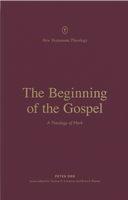
Mark By the Book: A New Multidirectional Method for Understanding the Synoptic Gospels (Smuts)
- Affordable shipping (free $100+)
- 100,000+ customers served
- "Wonderful books, great prices, awesome customer service." – Ivan, IL
Description
P. W. Smuts uses the gospel of Mark as a springboard to compel readers to interpret the Synoptic Gospels against the broader sweep of redemptive history by advocating a “multidirectional” hermeneutic—one that looks downward into the immediate context, sideways into parallel traditions, backward into the Old Testament background, and forward into relevant New Testament passages.
Contents
- An Introduction to Mark’s Gospel
- Jesus Is Introduced
- Jesus Heals a Paralytic
- Jesus Pronounces on the Sabbath
- Jesus Teaches in Parables
- Jesus Helps the Helpless
- Jesus Feeds the Five Thousand
- Jesus Helps a Gentile
- Jesus Predicts His Death and Resurrection
- Jesus Is Transfigured
- Jesus Challenges a Rich Man
- Jesus Clears the Temple
- Jesus Endorses the Commandment to Love
- Jesus Predicts the Destruction of the Temple
- Jesus Predicts Peter’s Denial
- Jesus Lays Down His Life on a Cross
- Jesus Rises from the Dead
Endorsements
"What a wonderful idea—a commentary for redemptive-historical preaching! Here we have a skillful unfolding of the message of Mark. . . . Dr. Smuts has clearly immersed himself in Mark . . . and here is the fruit of his study: informed, accessible, enthusiastic, and pastoral."
—Dan G. McCartney, Professor of New Testament Interpretation, Redeemer Seminary, Dallas
"Dr. Smuts’s studies in Mark’s gospel provide instructive examples of his ‘multidirectional’ hermeneutic that demonstrate the potential of his approach for a sound understanding of the other gospels."
—Richard B. Gaffin Jr., Professor of Biblical and Systematic Theology, Emeritus, Westminster Theological Seminary, Philadelphia
"I commend Mark by the Book for four reasons. First, experience: it is the product of years of teaching. Second, focus: it is crystal clear, insightful, Christ centered. Third, practicality: it works. The author has successfully used it to train students how to interpret Scripture better. Fourth, fruit: the result is better handling of God’s Word, more love for Jesus, and a greater zeal to spread the good news—four very good things!"
—Robert A. Peterson, Professor of Systematic Theology, Covenant Theological Seminary, St. Louis
About the Author
P. W. Smuts (PhD) teaches hermeneutics, homiletics, and biblical Greek at the Bible Institute of South Africa near Cape Town.





